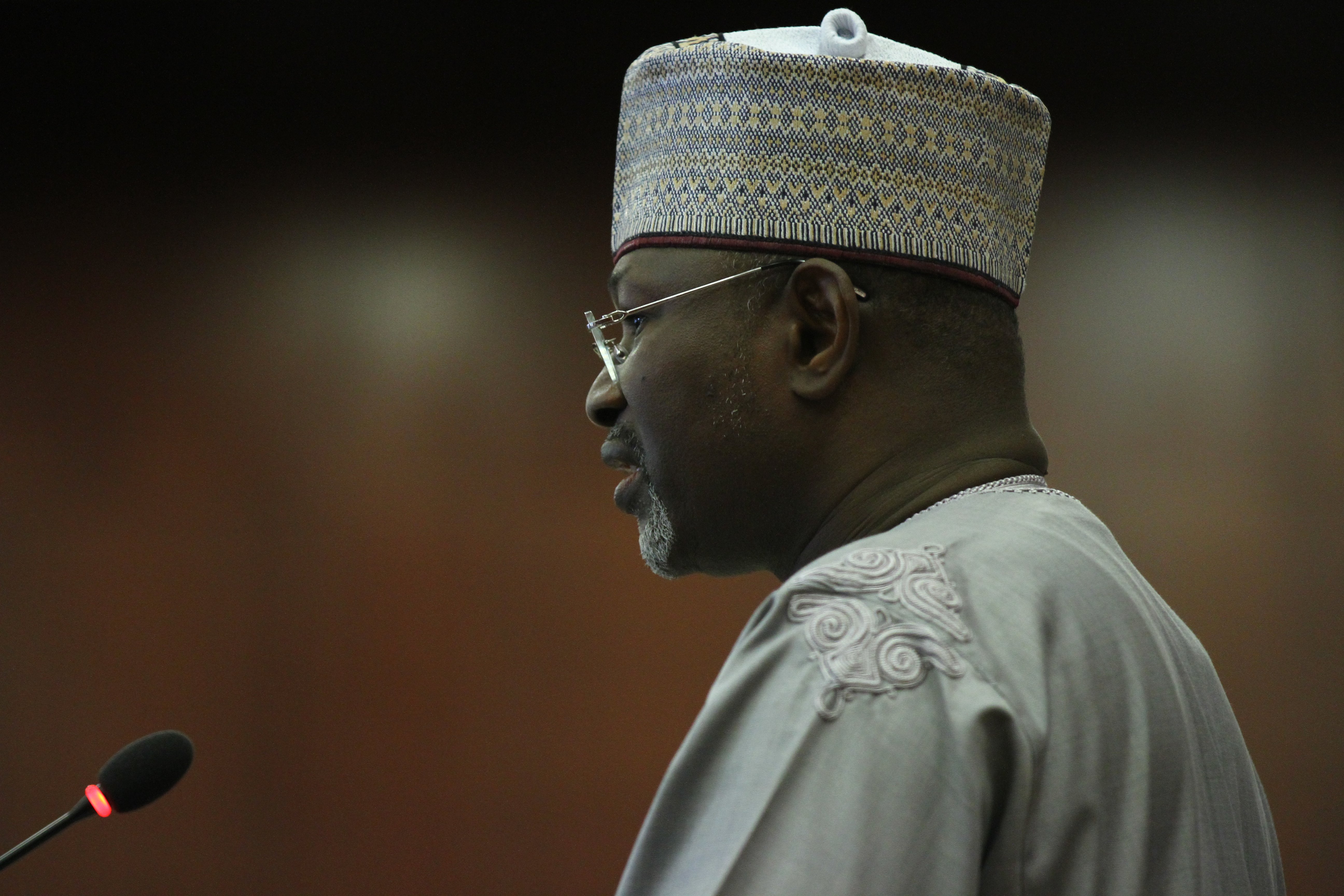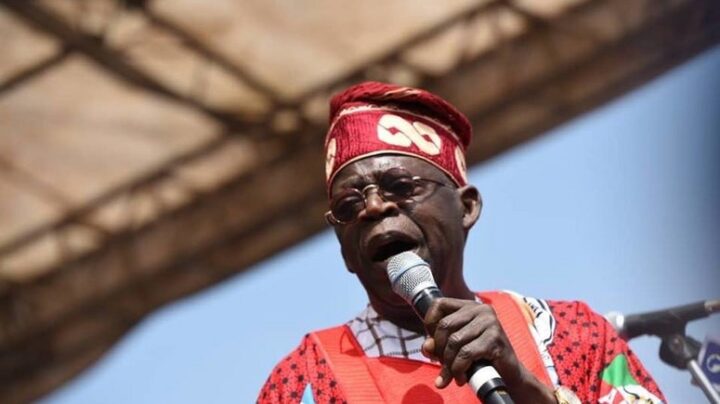No country becomes a power by accident. Necessity, impetus and strategy are the key factors that push a country to become a power in the comity of nations.
America’s road to being a superpower commenced in the 1770s when the original thirteen states felt and decided that having established themselves in the new world, they needed to chart their destiny away from the political and economic dominance of Britain. The impetus was provided by the attraction of the vast areas to the west of the country and the riches contained therein to support the expansive dream and vision of America’s founding fathers.
Nigeria’s burgeoning population which by all projections will be approaching something in the neighbourhood of 500 million in a couple of decades which puts us on course to be the third largest nation on earth after China and India will constitute the major impetus for our quest to become a power in the comity of nations.
Obviously we do not need a clairvoyant to tell us that this development will propel momentouspolitical and socio-economic paradigm shifts in the country.
Advertisement
In trying to cope with the existential challenges brought about by rapid population growth, Nigeria will be compelled to act in three survivalist concentric circles; mobilize and apply its vast human and material resources for national development, expand and consolidate the scope of our economic and social engagements in West Africa where we have unparalleled built-in advantages, and from that position spread to influence and dominate the African continent economically and politically. Along the line will inevitably come the task of linking up and pursuing the rights of all persons of African descent wherever they may exist on the face of this earth.
In pursuit of this it is inevitable that there will result a seismic political, economic, social and strategic shift in the global order which none of the superpowers will encourage.
On the part of Nigeria this calls for a fundamental assessment of our position in the world with accent on our strengths, weaknesses, and the opportunities we can leverage relative to the existing superpowers as well as other emerging powers in the mix.
Advertisement
We have for too long neglected to examine and deploy the latent strengths and opportunities that our position in Africa and the world offers us in securing the thrust for our economic development. With the advantages we have in this regard, it is incongruous that we have quite simply been punching below our considerable weight in our interactions with the world.
In view of the coming headwinds of social discontent occasioned by growing centripetal forces in the country, it is time to change all that. The world must be made to feel and recognise the need to engage constructively and comprehensively with Nigeria.
While pursuing a new economic paradigm with America we should also not forget the China card. China is at present expanding its economic influence in Africa exponentially on the back of unassailable advantages in terms of an almost bottomless financial war chest, favourable cost and technology against both the African countries collectively on one hand and America and its allies on the other. At this rate China is likely to have an unchallenged access to the minerals, commodities and markets of Africa thereby further consolidating its bargaining position against its rivals in the global economy.
Obviously China’s response to an emerging Nigeria as an economic rival on the continent will be mixed. China will view the rise of an economically powerful Nigeria within situ built-in advantages as a threat to its expansionist economic trajectory in Africa. It will both try to seek economic partnerships with Nigeria where opportunities for that exists, as well as undermining Nigeria’s economic expansion on the continent if it can.
Advertisement
If we push successfully for a new economic paradigm shift with America, this will change the dynamics of global economic interaction. Other powers will almost certainly on cue reach out to seek new economic engagements with Nigeria and Africa.
But will America budge? And what measures can we expect America to take in coping with the challenge of an emerging Nigeria?
American strategic thinkers have long concluded that the rise of Nigeria in global standing will directly and indirectly affect America in all areas of endeavour. For this reason America more than any of the superpowers will be expected to implement a policy of containing Nigeria as a way of safeguarding its own position in the world.
But in spite of the advantages it has, can America really prevent Nigeria from emerging as an influential force on the global scene?
Advertisement
Militarily America will find it problematic to deploy its formidable armed forces against Nigeria. First, American military planners will have stacked against them the possibility that none of its many African-American Generals will take on the job of leading such a military confrontation. And for that matter no African-American soldier in any of the services of the American armed forces will. And if some neo-con American policy makers were to be foolish enough to push America into such a misadventure, the blowback will be seen and felt in the cities of Washington DC, New York, Brooklyn, Chicago, Atlanta, Baltimore, Los Angeles etc.
Equally, economic sanctions as a punitive measure from America against Nigeria will not work. Yes there will be threats and symbolic gestures and a lot of hot empty and meaningless rhetoric but then America will not want to hand over the foothold it currently enjoys in the largest economy in Africa to China. The formidable American oil and agricultural lobby representing vast interests in the Nigerian oil and agribusiness will filibuster and ultimately thwart such a move in Congress. And in the unlikely event of this happening, the huge American business interests in Nigeria will surely work against it secretly and openly eventually rendering it meaningless.
Advertisement
No, America’s hands are too tied against Nigeria and we must use this to our advantage. America cannot hurt us without hurting itself big time in the process. It is called realpolitik in which nations use their advantages strategically to secure the means for their economic advancement. After all America itself deployed it to wear down and eventually collapsed the Soviet Union.
So what strategies can Nigeria deploy to take maximum benefits from this reality?
Advertisement
In undertaking a fundamental review of our position in the world, the top priority should be to renegotiate the terms of our economic engagement with America and the principal economic powers of the world. This is strategic because America being the largest economy in the world leads and determines the trend of global economic interaction.
Our economic relations with America are too skewed against our present economic aspirations and should we continue in this manner, it can only continue to result in the flight of much needed capital out of Nigeria thereby denying us and future generations the economic development due us.
Advertisement
Nigeria must lead the efforts to seek a new economic engagement with America on the platform of a massive and comprehensive infusion of capital to kick start new economic paradigms in Africa. This should be on the basis of America rebuilding the continent from which it drew much of its foundational economic capital to become what it is today. Instead of much needed development capital leaving Africa continuously through the policies of American controlled IMF as it is now, it should rather be the other way in much the same way as America poured in massive capital to revive and redevelop Europe after the Second World War.
This is the existential essence of Nigeria and we must in earnest begin to find and task the leaders that will implement it.
(Concluded)
Views expressed by contributors are strictly personal and not of TheCable.
Add a comment






